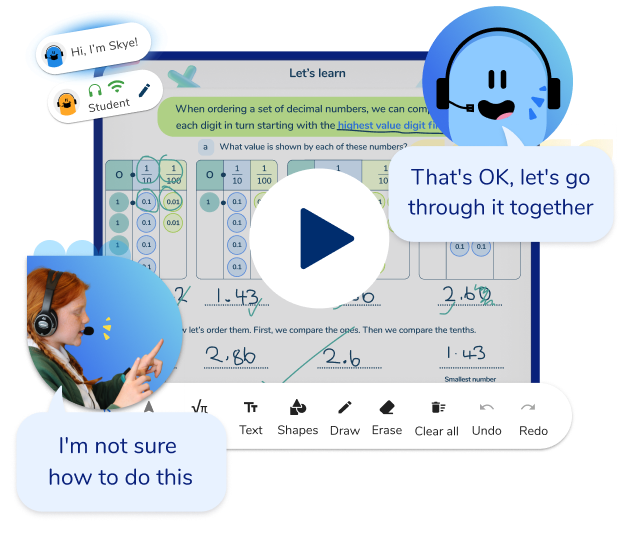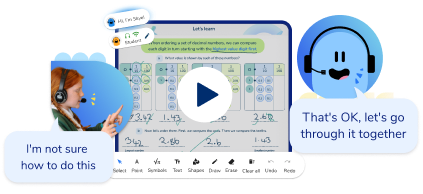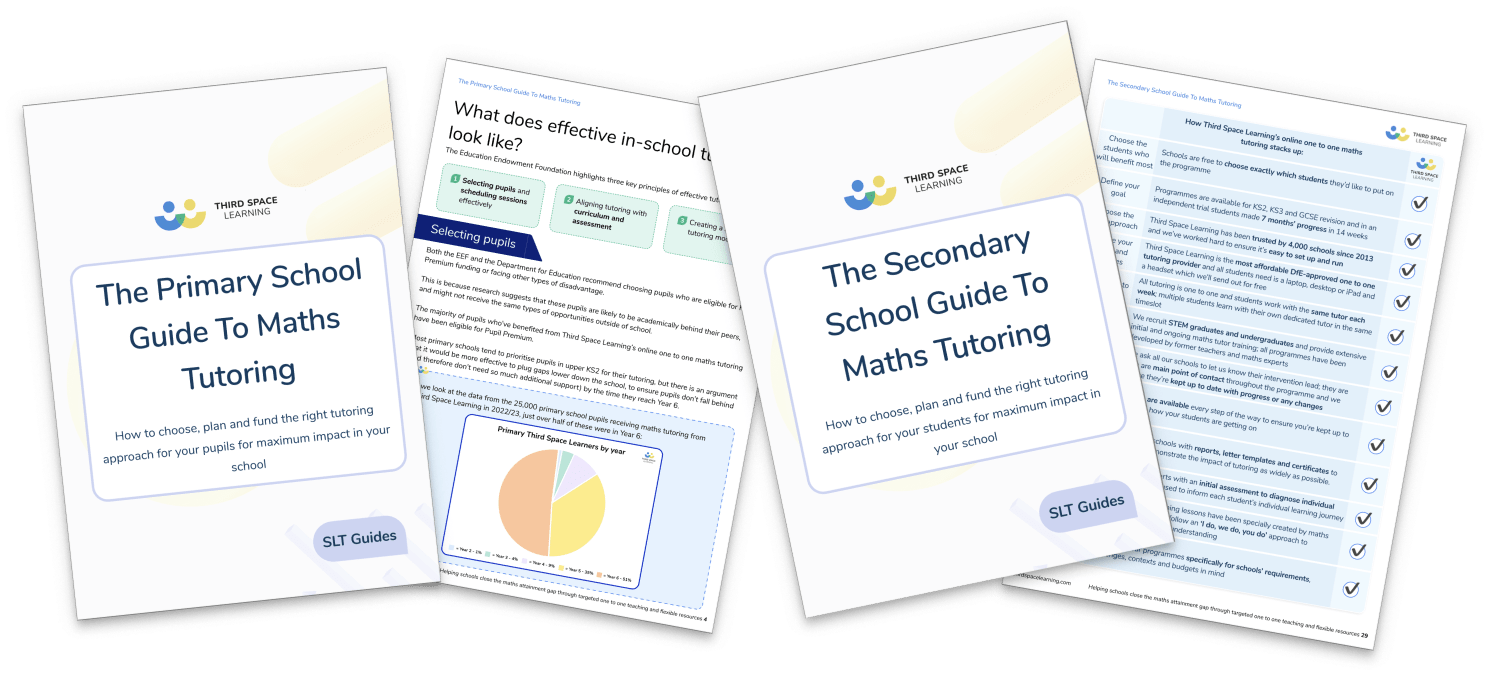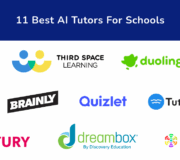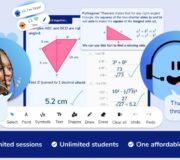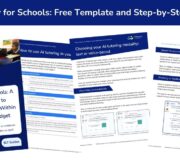Exploring The Maths Attainment Gap In The UK: Where Do We Stand And What Needs To Be Done?
A new report by the Centre for Education and Youth (CfEY) has warned that pupils in the UK are reaching a crisis point in their maths learning; not only has maths been the most affected subject in terms of post-pandemic learning loss, but maths is also the subject where the link between KS2 performance and eventual GCSE performance is the strongest.
Findings from the report also show that, at primary school, pupils are actually less likely to receive tutoring in maths than in English.
The report, titled ‘A Space for Maths’ suggests that a concerted effort must now be made to provide primary school pupils – particularly those in lower KS2 – with the support they need to mitigate these risks. It looks at the need for maths tuition in school to provide this support and explores the role Third Space Learning can play in shaping this solution.
CfEY, a think and action tank, provide the evidence and advice that policymakers and practitioners need to support young people. The report was authored by Loic Menzies, Baz Ramaiah and Catherine Boulton.
“The question that underpins this report is therefore: what could help pupils who – even before they leave primary school – start to doubt their potential to achieve in maths? Third Space Learning believe that tutoring could help, and an increasing number of parents and teachers agree with them.”
Loic Menzies, Chief Executive, Centre for Education and Youth
Further reading: ‘A Space for Maths’ CfEY Report
- Why does maths need to be the highest priority for schools?
- What role can tutoring play in raising maths attainment?
- How can we make sure tutoring is high-quality and effective?
- What does a successful tutoring solution look like?
- 1. Tutoring solutions need to scale up rapidly
- 2. Tutoring solutions should tackle the particular challenges pupils face in maths
- 3. Tutoring solutions need to build on the best available evidence regarding how to maximise impact
- 4. Tutoring solutions need to address practical constraints that can hamper effective implementation
- In conclusion: what do we need to do now?
Why does maths need to be the highest priority for schools?
It’s no secret that COVID-19 has had a huge impact on the educational attainment gap. A great number of pupils have missed out on valuable teaching time and have struggled to keep up as a result. Many studies put the value of learning loss at around 2 months, but this increased to 7 months for pupils from disadvantaged backgrounds.
See also: Tutoring Disadvantaged Students
Maths, it seems, has been particularly affected. ‘A Space for Maths’ outlines how “the Year 6 Pupil Premium group could now be around 7 months behind the non-Pupil Premium group in maths.”
Even before the pandemic, the gap was wider in maths than it was in English, and this has now been exacerbated further. One study quoted in the report estimates a 10% to 24% widening of the gap in maths “but no discernible change in the reading gap”.
Not only has maths been disproportionately affected by the pandemic, but new findings from ‘A Space for Maths’ suggest that it is particularly critical that pupils achieve in maths at KS2. Whereas pupils with low English attainment at KS2 might still go on to do well at KS4, the same doesn’t look to be true for maths.
“Pupils who do poorly in maths early on find it harder to turn this around and achieve highly at the end of secondary school compared with pupils who do poorly in English at Key Stage 2, who have a somewhat higher chance of going on to do well despite early difficulties.”
– ‘A Space for Maths’, Centre for Education and Youth, September 2021
One reason for this is the presence of ‘maths anxiety’. If children believe – or have parents who believe – that they’re not good at maths, this “translates into disruption to learning” that “drives pupils to avoid mathematical activity” and can “overload and disrupt working memory during mathematical tasks.”
Coupled with the fact that difficulties in maths – particularly for disadvantaged pupils – have long-term “educational, social and economic consequences”, it’s clear that a sustained effort must now be made to ensure pupils’ knowledge is secure and their confidence in maths has been developed before they leave primary school.
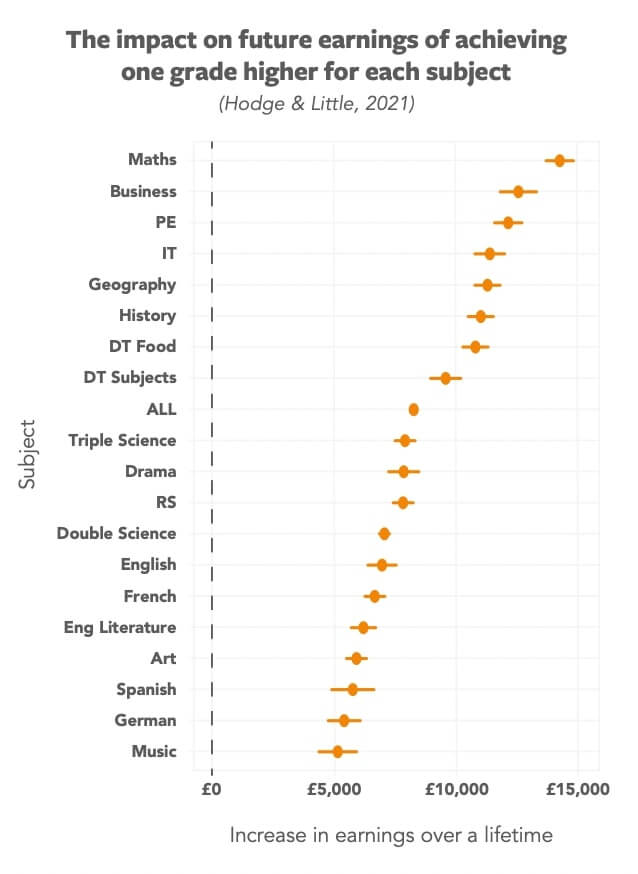
What role can tutoring play in raising maths attainment?
“Education systems are currently grappling with how to ensure pupils make accelerated progress. There are no obvious or proven ways of making up lost ground. However, researchers, teachers, parents and government in England have all recognised that tutoring offers one of the ‘best bets’ for tackling learning loss.”
‘A Space for Maths’, Centre for Education and Youth, September 2021
The report states that “an extensive body of evidence” points to tutoring as an effective way to support those pupils who need it most, helping to raise attainment and therefore close the gap that’s been recently widening. It also states that “the available evidence points to a number of reasons why maths tutoring might hold particular promise, especially if deployed early on in Key Stage 2.”
This is because in school tutoring is uniquely placed to address all those things that make maths such a critical subject to ‘get right’ by the end of KS2; essentially, the fact that, with maths, the root of the problem is so often to do with perceived ability and a lack of confidence and low engagement.
Maths tutoring at this critical stage provides pupils with the opportunity to explore topics and practise their skills in a low-stakes environment where they may feel more confident than they do in front of their peers. By working in small groups or one to one with tutors, pupils are also likely to feel more engaged and therefore get more out of their learning time.
The Ultimate Guide to Maths Tutoring
A guide on how to choose, plan and fund the right tutoring approach for your students for maximum impact in your school.
Download Free Now!As the report states, “support from tutors could provide a way of shortcutting the effects of parents’ and pupils’ maths anxiety.”
However, due to limited funding and tutor supply, tutoring is not necessarily an easy fix. The report estimates that over 26 million hours of tutor time are required to support those pupils who are eligible for Pupil Premium alone, aside from any additional pupils whose education has been affected by the pandemic, or who simply need additional support to catch up with their peers.
It goes on to explore the funding currently available to schools, noting that, in its first year, the National Tutoring Programme provided funding to reach just 17% of pupils in receipt of Free School Meals.
This funding has since been increased, “with the stated goal of delivering 6 million 15-hour tutoring courses – in other words, 90 million hours of tutoring.” However – and crucially – there is not yet clarity on exactly where the supply required to reach this goal will come from…
“There are neither large numbers of maths teachers, nor maths graduates on standby; maths has long been one of the subjects where it is hardest to meet teacher recruitment targets, let alone recruit an additional workforce of suitably qualified tutors. The costs of growing the tutor workforce to the required scale would also be extremely high given that the average salary for a ‘Mathematical Science’ graduate just one year after graduating was already £24,000.”
-‘A Space for Maths’, Centre for Education and Youth, September 2021
This challenge is explored in a recent report published by the Institute of Development Studies, which outlines how tutoring organisations that use global tutoring models (such as Third Space Learning) can act as a central part of the solution and help to close the maths attainment gap in the UK.
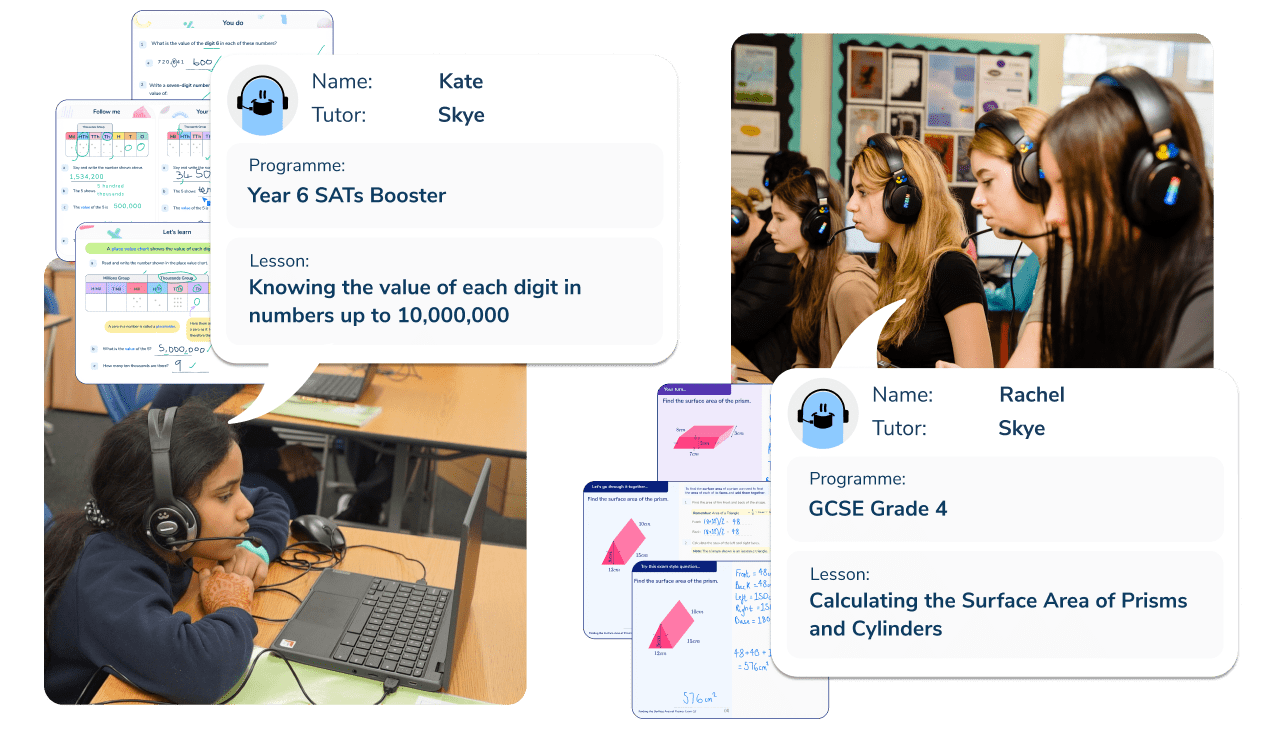
Meet Skye, the voice-based AI tutor making maths success possible for every student.
Built by teachers and maths experts, Skye uses the same pedagogy, curriculum and lesson structure as our traditional tutoring.
But, with more flexibility and a lower cost, schools can scale online maths tutoring to support every student who needs it.
Watch Skye in actionHow can we make sure tutoring is high-quality and effective?
We’ve established that pupils’ maths attainment is reaching crisis point, and we’ve established that tutoring might just be one of the best ways to help turn the tide. This then begs the question: how do we make sure tutoring is done in the right way?
The report suggests “a number of factors need to be taken into account when doing so,” notably:
- Tutor skill level
- Programme design
- Cost
- Equity of access
- Technical experience
- Attendance
For example, here at Third Space Learning, our structured curriculum and intelligent programme design alone are not enough to make our tuition high quality, nor is the fact that we’re built for school budgets. Even the rigorous application process Third Space Learning tutors go through and the extensive training they receive is not enough to ensure our tutoring is effective in schools.
That’s why we focus not only on these principles but also on which pupils we’re reaching, the experience for schools and how the tuition fits into the reality they face.
The majority of the pupils we’ve supported are eligible for Pupil Premium, meaning we’re reaching those pupils who need it most and helping to make high-quality tuition more accessible for children who may not have the same opportunities as their peers.
We also place a huge focus on timely and helpful communication with our schools, helping to make sure they have everything they need so that their sessions can run smoothly and their attendance is high. Our development team is dedicated to minimising technical issues and providing a seamless platform experience for both pupils and teachers.
It is these factors together that make our online one to one maths tuition programmes so effective, and why so many schools continue to use us each year.
The report also outlines several other factors which teachers, in particular, see as essential when considering tuition:
- Tutor training
- Tutor/pupil relationships
- Alignment with classroom teaching
According to the report, “around a quarter of teachers told Teacher Tapp that their biggest concern for the National Tutoring Programme was that tutors would not be adequately trained.” It’s understandable that, when inviting tutors into your school, be it in-person or online, schools need to be sure that tutors are equipped to work effectively with their pupils.
All Third Space Learning tutors complete the Global Tutoring Programme, our intensive 3-week training programme, before delivering their first session. This involves a series of webinars, practice lessons, observations and coaching sessions. At the end of their initial training, all tutors must pass a series of assessments before delivering their first lesson. If they do not pass, they receive additional guidance and support to ensure they’ve reached the required level before working with pupils.
Once they begin delivering sessions, tutors receive regular and ongoing CPD, including team discussions, lesson observations and assessments. Tutors also have their own dedicated Academic Coach to ensure they’re supported and empowered every step of the way.
A key part of the training is equipping tutors with the tools they need to build effective and positive relationships with their pupils. We’ve also kept this in mind when building our programme; during their initial assessment, pupils are asked questions about their hobbies and interests, which then helps tutors to build a rapport and develop a relationship with each pupil.
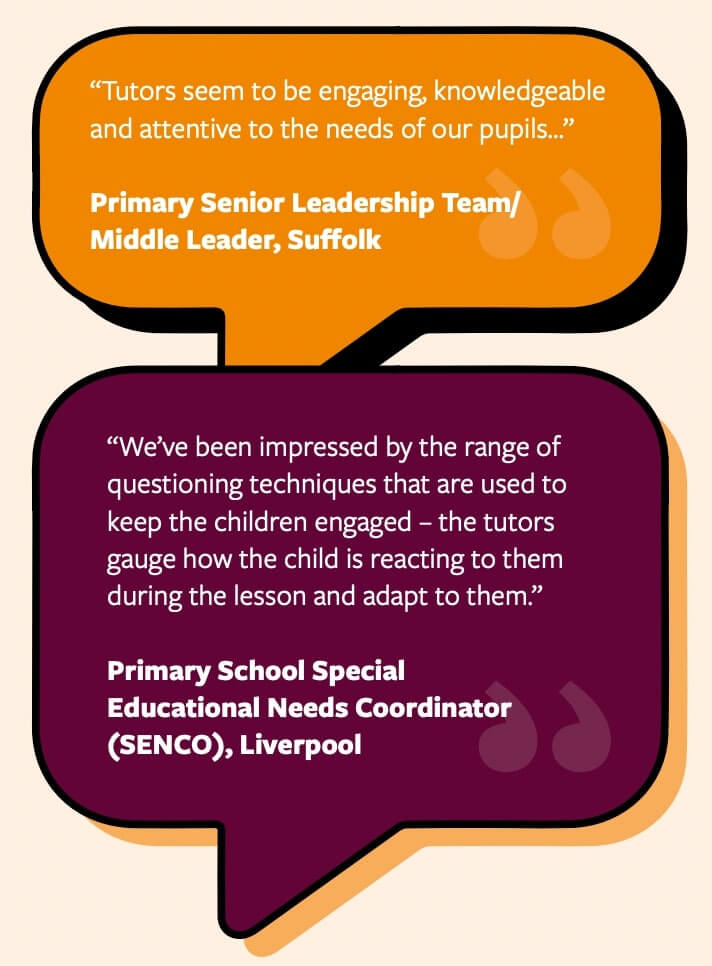
However, as the report suggests, an intensive training programme and tutors who work to build relationships with their pupils are not enough to ensure teachers feel confident with a potential tuition provider.
They need to be sure that the tuition is aligned with what their pupils are covering in class. That’s why we ask teachers to identify the highest priority strands for each pupil and provide schools with two options when it comes to lesson selection; they can either choose for lessons to be selected automatically for each pupil every week to plug individual gaps, or they can opt to select lessons themselves in advance of each session. Even for schools who choose to use the results of the diagnostic assessments, they can still skip or re-order lessons as best suits their needs.
See also: School Led Tutoring
What does a successful tutoring solution look like?
So, we’ve established that tutoring is an effective way to help close the maths attainment gap in the UK, and we’ve considered the factors needed for high-quality and effective tuition, but what must happen to ensure any high-quality offering actually meets the needs of the UK right now?
‘A Space for Maths’ identifies “four main requirements that maths tutoring solutions will need to meet if they are to address the pandemic’s profound impact on maths learning, particularly for disadvantaged pupils.”
- Tutoring solutions need to scale up rapidly
- Tutoring solutions should tackle the particular challenges pupils face in maths
- Tutoring solutions need to build on the best available evidence regarding how to maximise impact
- Tutoring solutions need to address practical constraints that can hamper effective implementation
The report goes on to explore each of these in more detail.
1. Tutoring solutions need to scale up rapidly
Whilst there is an “urgent need” to provide this kind of additional support to the pupils who need it most, the current levels of supply – at least in the UK – are far from sufficient.
“By drawing on an international pool of tutors, Third Space Learning has been able to scale up much more quickly in response to the pandemic than would otherwise have been possible. Indeed, the number of pupils Third Space Learning tutored more than tripled between summer 2020 and summer 2021, rising to nearly 20,000 pupils in summer 2021.”
Centre for Education and Youth, September 2021
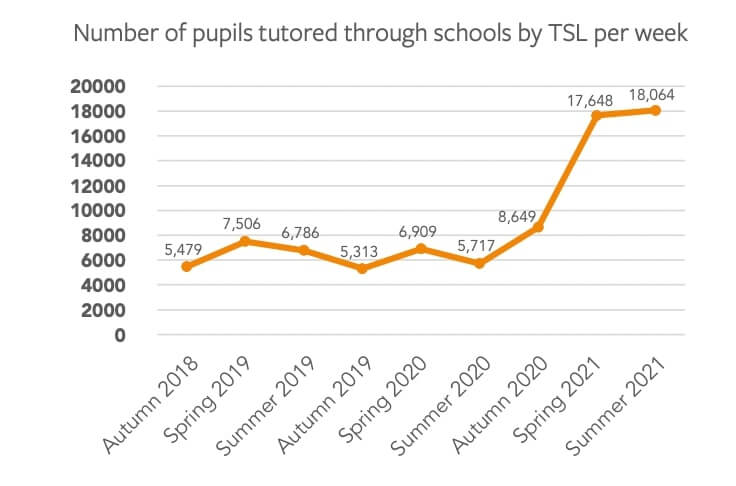
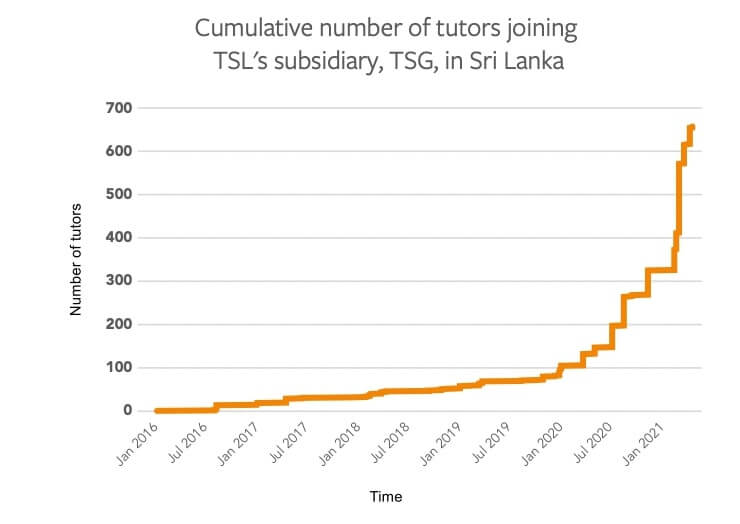
2. Tutoring solutions should tackle the particular challenges pupils face in maths
The report classifies these challenges as:
- Ensuring pupils leave primary school with the skills they need
- Overcoming maths anxiety
As the report has found, the link between KS2 and KS4 performance is stronger in maths than it is in other subjects. As such, tutoring solutions must ensure that they support pupils to develop their skills and grow in confidence as early as possible in KS2.
Here at Third Space Learning, we’re passionate about helping children build solid maths foundations early on, and, although we do provide tuition to KS3 and KS4 pupils, 99% of the pupils we support are at primary school. However, just under 60% of these pupils are in Year 6, and in response to the findings from this report, we will now be looking at how we can encourage schools to put younger pupils onto the programme.
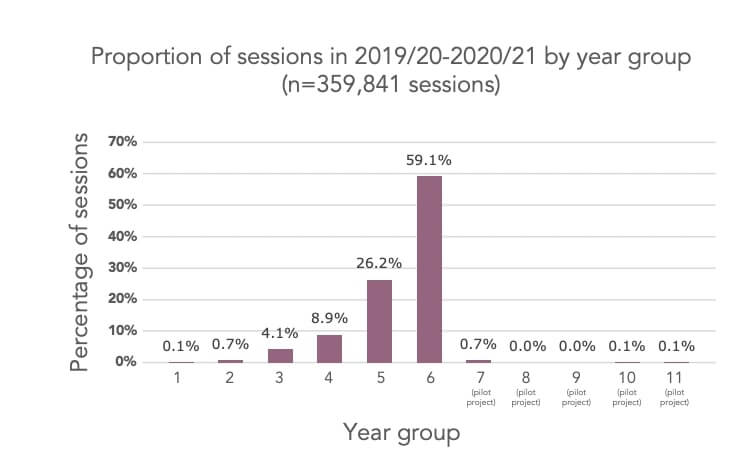
Solutions also need to ensure that tutoring puts as much focus on pupils’ mindsets, as much as it does on academic attainment. The two go hand in hand; helping pupils to feel more confident in maths is critical if we’re going to be successful in closing the maths attainment gap.
This is something we’re hugely proud of at Third Space Learning. Building confidence and minimising anxiety is a large part of the Global Tutoring Programme training and comes up again and again in the feedback we receive from our schools.
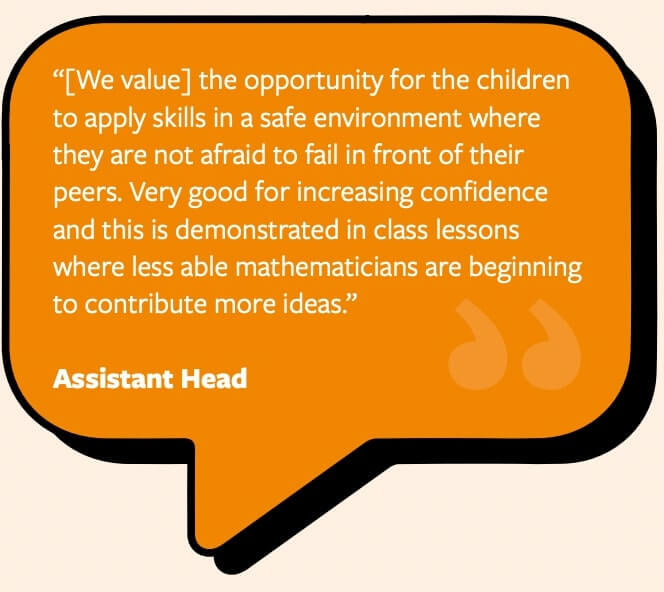
As well as reporting on the progress made and gaps plugged, our weekly and termly progress reports also show the impact sessions are having on each pupil’s maths mindset.
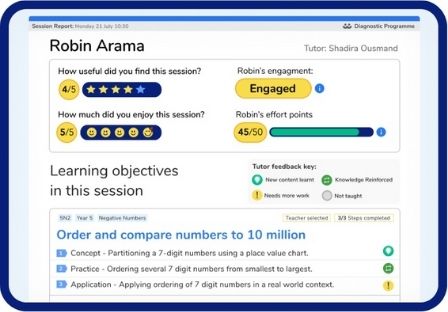
changes in mindset as well as academic attainment.
A review conducted by CfEY, as part of this report, found that “the proportion of pupils who strongly agreed that they ‘feel confident in maths’ almost doubled from the start to the end of the programme in 2020/21”.
3. Tutoring solutions need to build on the best available evidence regarding how to maximise impact
Whilst the report acknowledges that more research is needed – particularly because so much of the existing research is focused on English tuition – it outlines a number of ‘best bets’ for ensuring impact when it comes to tutoring.
“Providers should therefore employ highly skilled and trained tutors and help them to deploy effective pedagogy while building good rapport with their tutees. Tutoring programmes should be carefully designed and linked to the curriculum.”
It goes on to explore Third Space Learning’s offering in relation to these ‘best bets’, noting how, when reviewing feedback given by schools using the service, teachers often referenced how impressed they were with the tutors, how much they liked seeing the tutor/pupil relationship develop, how effective the initial diagnostic assessment is at informing the structure of the programme and how the lessons help to reinforce what pupils have learnt in class.
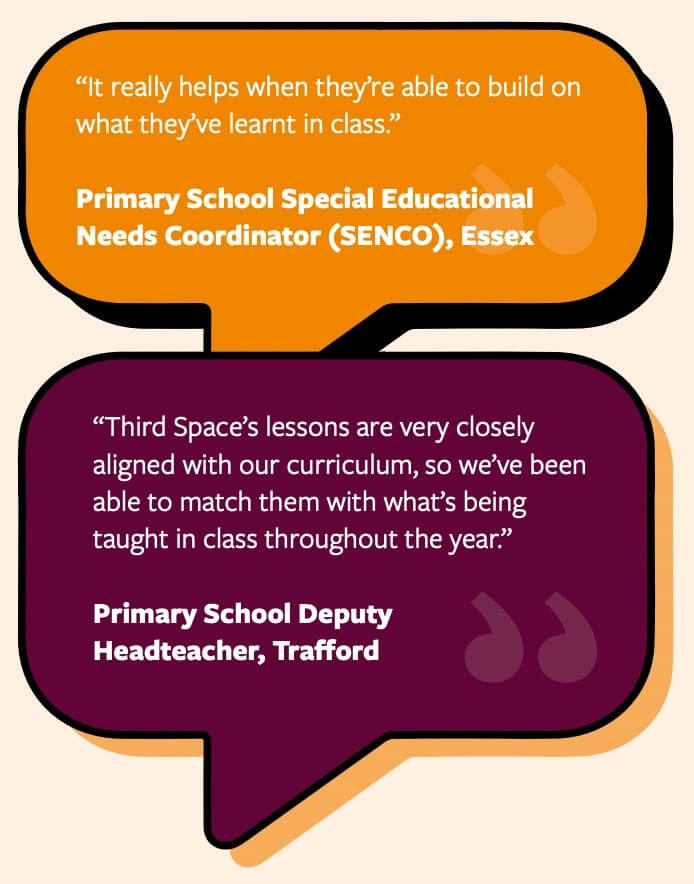
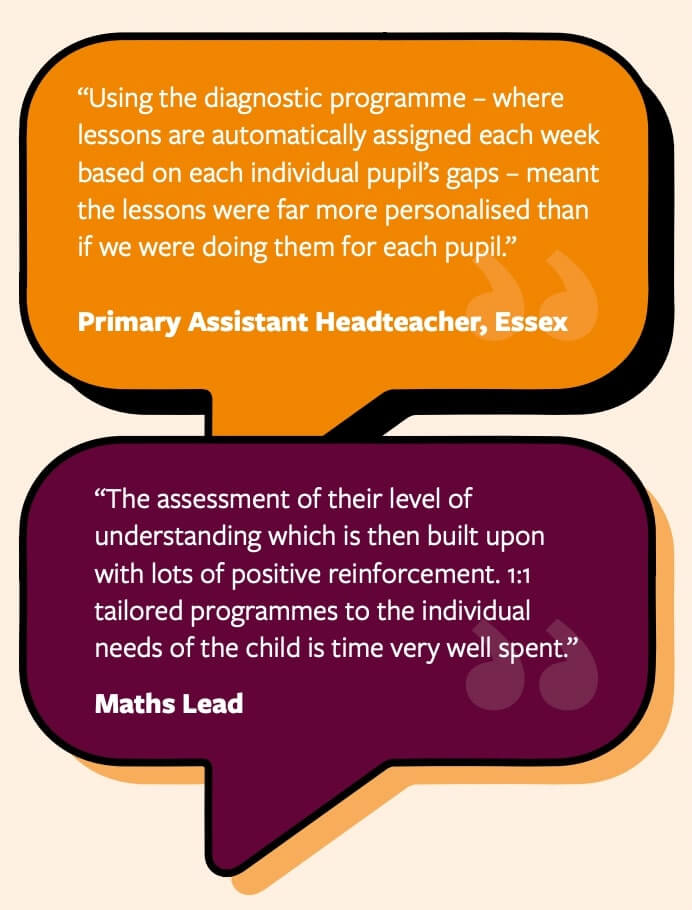
4. Tutoring solutions need to address practical constraints that can hamper effective implementation
The report picks out four key areas that can stand in the way of delivery:
- Equity
- Technology
- Attendance
- Cost
‘A Space for Maths’ notes that Third Space Learning is “considerably less inequitable than traditional tutoring” due to the fact that teachers choose which pupils take part, and, more often than not, are using funding specifically geared towards disadvantaged pupils.
Its findings suggest that “the proportion of Third Space Learners who are eligible for the Pupil Premium is double the national average (42% as against 21%).”
As part of the report, CfEY looked into how schools’ technical experience of Third Space Learning has changed over time and noted that, since a 2016 evaluation suggested a series of recommendations, “improvements to technology have been a priority for Third Space Learning… The organisation has rolled out a new platform that is intended to better suit younger pupils and it now provides schools with headsets.”
It also looked into attendance data and found that “Third Space Learning typically achieves an attendance rate of over 80% and pre-pandemic the figure was over 90%. Although, unsurprisingly, there were some dips during school closures”.
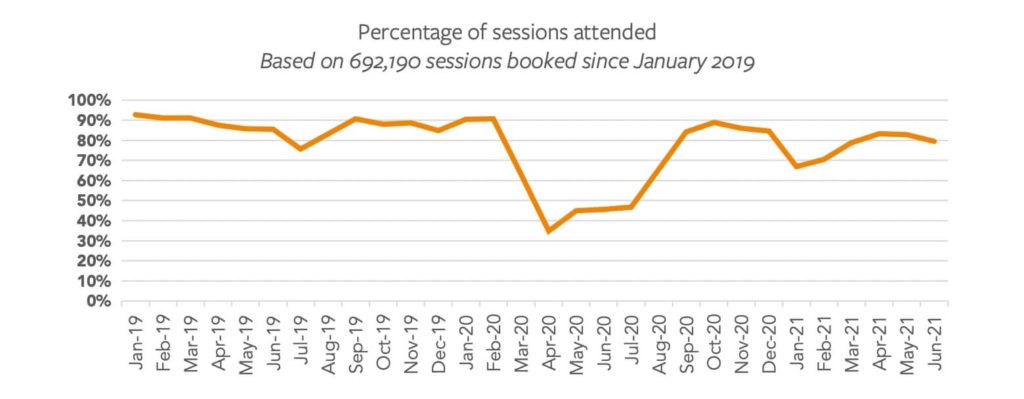
And finally, cost. This is often one of the biggest hurdles for schools when it comes to implementing tuition to help close the attainment gap.
The report states that the cost of Third Space Learning is 21% cheaper than the EEF’s estimate of the median cost for one-to-one tuition, and 18% below the National Tutoring Programme’s ‘value for money benchmark’.
In conclusion: what do we need to do now?
“This report makes for deeply concerning reading. At Third Space Learning we are well aware of the themes, but it is the scale of the problem which is most sobering. It must provoke a determined and prolonged response from all of us involved in supporting children’s learning. Whilst Third Space’s model is just one option, we would urge policy makers to embrace solutions such as ours that can help solve the true size of the maths attainment gap.”
– Tom Hooper, Founder, Third Space Learning
The findings of the report demonstrate a clear and indisputable need to provide targeted support for those pupils who are falling behind in maths, and put forward tutoring as a very effective potential solution to this challenge.
For Third Space Learning, in particular, it suggests that we meet “many of the requirements for an effective solution to learning loss. It therefore has the potential to play an important role in helping pupils bounce back from the pandemic.”
“Third Space Learning is a primary-school focused, one-to-one maths tutoring programme that is highly scalable and which employs an intensively trained and selected pool of tutors who deliver a carefully structured intervention. It therefore provides a valuable solution to the challenges our pupils and education system are currently facing.”
‘A Space for Maths’, Centre for Education and Youth, September 2021
Read more about the support we offer:
DO YOU HAVE STUDENTS WHO NEED MORE SUPPORT IN MATHS?
Skye – our AI maths tutor built by teachers – gives students personalised one-to-one lessons that address learning gaps and build confidence.
Since 2013 we’ve taught over 2 million hours of maths lessons to more than 170,000 students to help them become fluent, able mathematicians.
Explore our AI maths tutoring or find out about online maths tuition for your school.
